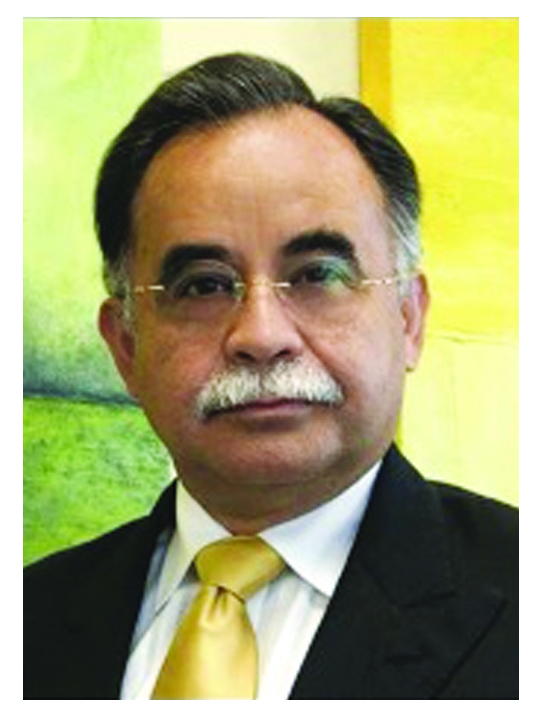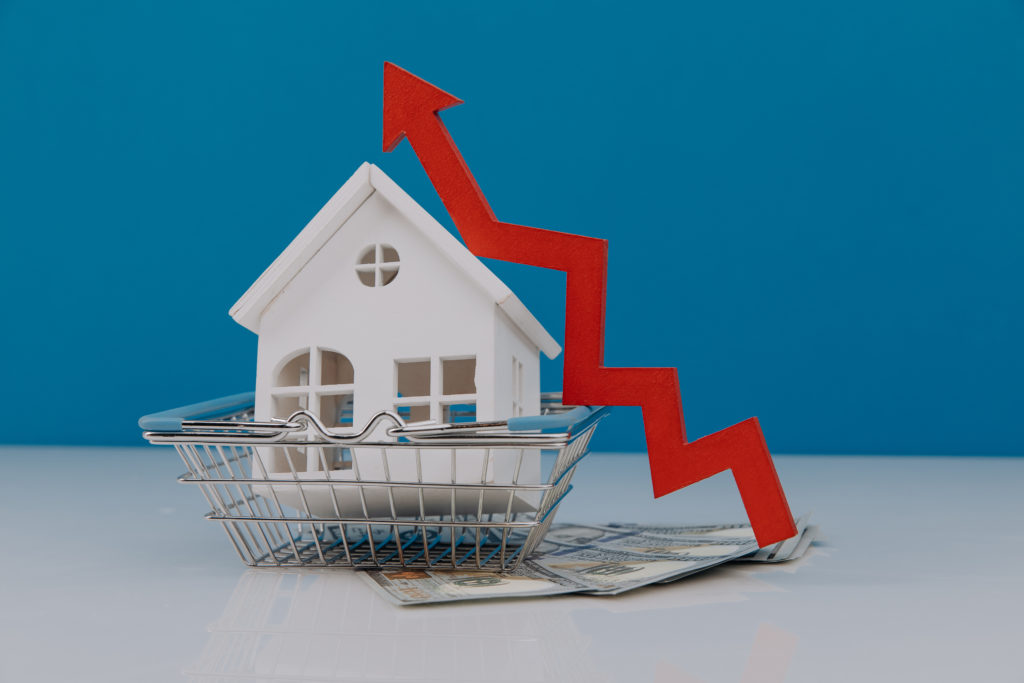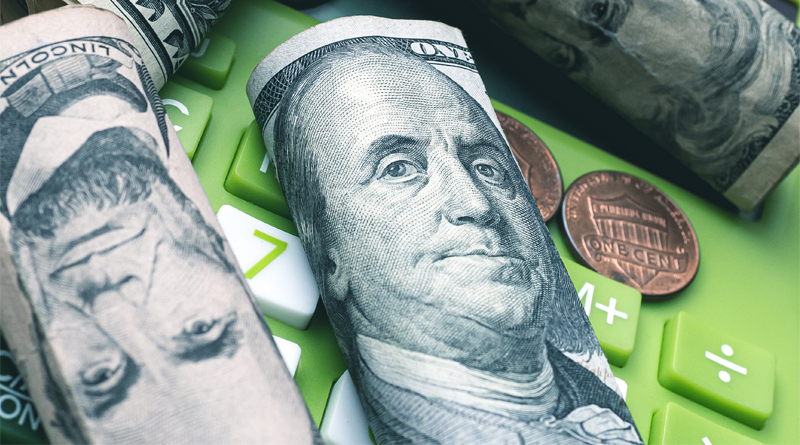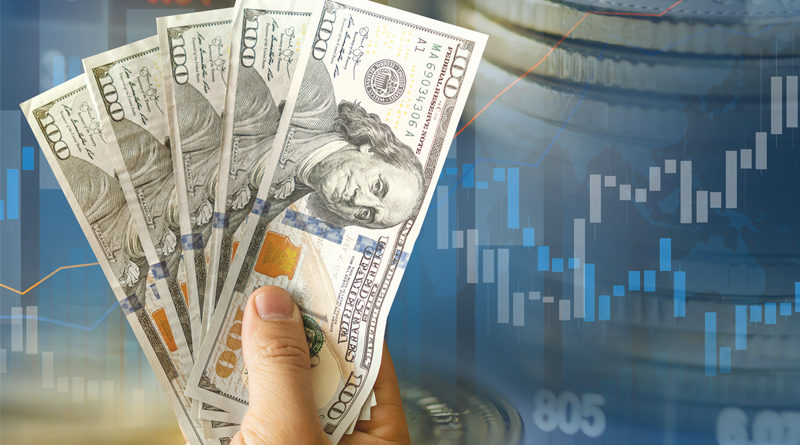In Times Of Inflation, The American Dream Is Fading
The recent increase in the interest rate has made people ask themselves if we are facing an economic recession. The unemployment rate remains under 4% and consumer expenditure is still high; these indicators signal that the possibility of a recession is still far from 2022.
By: Edda Pujadas
Making money more expensive has been the strategy of the United States government in their quest to help decrease the inflation but increasing the interest rates to get a loan also turns into an attack to the American dream. The dream that means that you can have your own home, cars, and in general terms any good that helps improving our quality of life.

Economist Tulio Rodriguez explains and analyses the possibility of a recession by first explaining the origin of this sustained inflation. “The issuance of debt in the last 30 years has been unstoppable. The Bush Administration increased it in 2001 by between five and six trillion dollars as a result of the 9/11 attacks, Obama added eight trillion more due to the banking crisis, and Trump faced the COVID 19 crisis, adding six trillion in just four years.”
Biden is doing the same thing, getting the country into more debt. This disarticulates the currency and has brought the debt up to thirty trillion dollars above the GDP. “We have taken away power to the currency and this generates inflation.”
Additionally, the supply of products is still insufficient for the demand that exists. This is due to the persistent problems with the supply chain which are aggravated by the closing of factories in China due to the new Covid outbreaks and because of the war between Ukraine and Russia that started at the end of February.
Rodriguez also brings up that during the pandemic, people received checks at their homes, companies received lines of credit, and there was inorganic money circulating to keep people in their homes and avoid companies firing their employees, which generated an excess of liquidity in the streets.
“Now the federal government is collecting this money, they are increasing the interest rate, increasing the cost of money, increasing the cost of loans; this is the reason for which I call this phenomenon an attack on the American dream, and even when this is a necessary measure to stop inflation, it is hurting badly the quality of life.”
Rodriguez indicates that the increase in the interest rates has complicated the real estate sector which has already been experimenting with a deficit in its inventory. When there is inflation, people take refuge in real estate properties to avoid losing their capital. “We now have investors buying real estate to avoid losing their money, but this is creating more demand.”
 “The worldwide geopolitics is also complicated at this time. Latin America’s governments are moving towards the left, Canada is in a concerning situation and Europe is fading, which has brought foreign investors willing to purchase properties in the United States, and increasing the demand even more.”
“The worldwide geopolitics is also complicated at this time. Latin America’s governments are moving towards the left, Canada is in a concerning situation and Europe is fading, which has brought foreign investors willing to purchase properties in the United States, and increasing the demand even more.”
Rodriguez clarified that the scenario today is very different from the one in 2008, when there was a wave of short sales and foreclosures, because today both the real estate and the financial markets are much more solid and strong, which generates stability on properties.
“Today the government is determined to stop inflation, so the interest rates will surely increase again, creating a deacceleration in several economic sectors and a decrease in the quality of life, which is why I believe that the next two years are going to be difficult. I believe that we will face a recession, but I do not know how long it will take nor how aggressive it will be, because we have reserves, and the country has a structure that can withstand it and the truth is that it is working because there is inflation but there are also jobs.”
What is a recession? According to an interview that EFE conducted with Connel Fullenkamp, an economics professor from Duke University in North Carolina, recessions are characterized by a worsening of the economy for at least two consecutive quarters.
Recessions come with a decline in consumption, investment, and in the production of goods and services. These declines also bring laid-off workers and therefore an increase in unemployment, which is why Professor Fullenkamp believes that one of the most predictable scenarios is a slowdown of economic growth.
Fullenkamp is not detecting any indicators of a real recession for 2022. The unemployment rate is still under 4% and the expenditure of the people is strong. He believes that a real concern could come from 2023 when this slowdown could lead to a recession.
 The Director of the National Economic Council of the White House, Brian Deese, has admitted that there is a risk of recession, but he called it a transition period that the economy could live through after the pandemic. “We are still in the transition of what has been the strongest recovery in the modern history of the United States to what could be a period of much more stable and resilient growth that will work better for the families.”
The Director of the National Economic Council of the White House, Brian Deese, has admitted that there is a risk of recession, but he called it a transition period that the economy could live through after the pandemic. “We are still in the transition of what has been the strongest recovery in the modern history of the United States to what could be a period of much more stable and resilient growth that will work better for the families.”
Jerome Powell, Chief of the Federal Reserve of the United States is more optimistic, and he is sure that the Federal Reserve’s economic growth is at 2% this year and he referenced the job market, which has recovered after the pandemic with an unemployment rate of just 3.6%
Powell expects growth this year, given that the expenditures in the homes and the investments from the businesses were consistent in the first quarter of the year, even when in other sectors was slower. “We have a solid economy, and nothing suggests that we are vulnerable or close to a recession”, he affirmed.


Everything that is currently happening in America is caused by global changes in the economy of all countries and this series of events in all countries can lead to a global economic crisis. I think that for any economy, an inflation growth is a bad indicator that inevitably entails an interest rate increase. This is a bad factor for ordinary people because along with inflation and an increased interest rate, loans, life, essential goods, energy carriers (fuel, gas) become more expensive. It also leads to negative consequences in the economy because different sectors of the economy begin to suffer from low demand from the population. Also, different sectors of the economy begin to suffer from increased demand from the population because people seek to save their money and invest them in some marketable sectors of the economy. I think it won’t come to a recession, but what is happening now is clearly a negative trend.